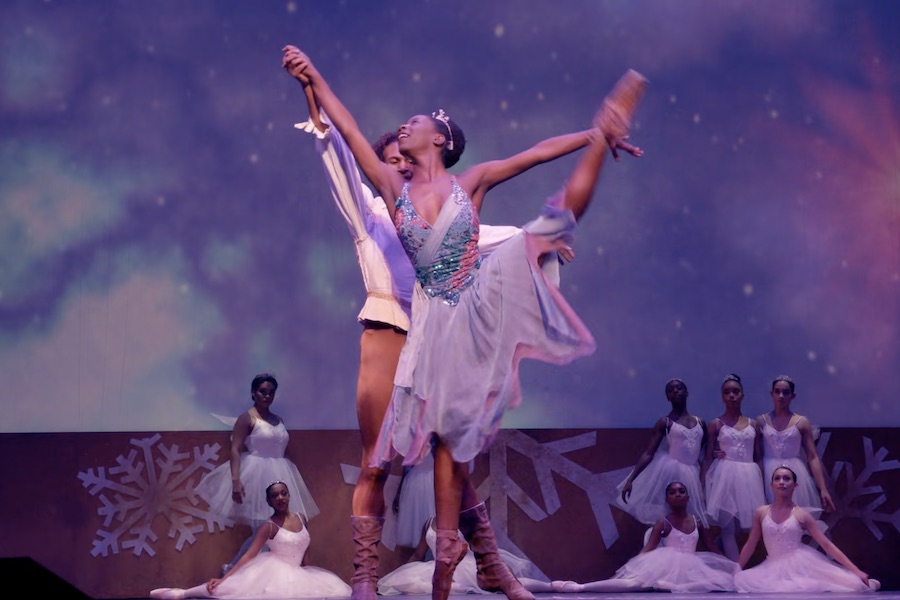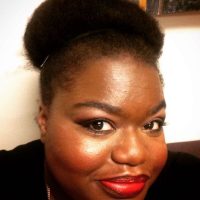The day it was released on Netflix, I watched Shondaland’s Dance Dreams: Hot Chocolate Nutcracker, the new documentary about Debbie Allen Dance Academy and their annual production. Before I knew it, I was crying.
While I danced as a child, I was never a ballet dancer. I’m not flexible, I’m not graceful, and my feet will never go en pointe. I wasn’t built like a dancer. I didn’t look anything like those slim blonde girls with the high, perfect buns. Still, I wanted to be in the Nutcracker so badly it hurt. I did not care about the Sugar Plum Fairy; I wanted to be Clara or a mouse. Look, Clara gets the best music (the pas de deux… my God) and the mice always had the cutest costumes. Plus, they get to have the most fun during the battle.
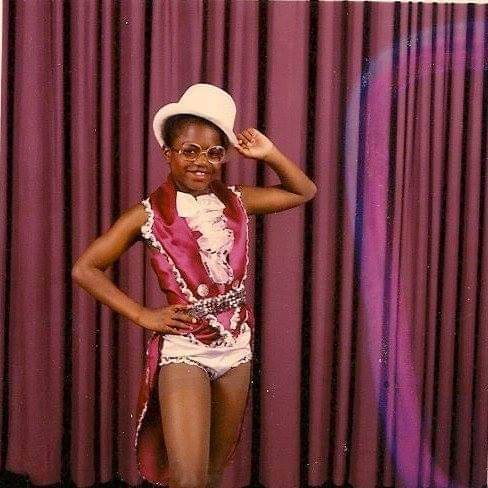 Me performing then.
Me performing then.
I sat under my dining room table every Christmas, listening to the Nutcracker cassette my godmother had given me — it sounded so great to me, on my little battery-powered radio — and I sang along “operatically,” while imagining myself on that stage, graciously receiving all those gifts from Coffee and Tea and the Polichinelles with “Clara” written on the cards.
But as I entered the professional arena, I started getting the same message as so many other dark-skinned girls: I was to dark to perform.
I was too dark to even be on stage.
As in, my skin is so outrageously dark, that I “wouldn’t be seen” on a stage. I was told it was an impossibility.
I did manage to create a successful career in music, focusing on opera, which offers more flexibility for a singer who looks like me. With opera I may never be Maria in Sound of Music, but I can be Mimi in La Boheme.
And yet, even in recent years, I’ve been told that my skin is too dark to play certain characters for no good reason. I’ve been told that my pairing with another character was “unrealistic” because of my dark skin. I’ve been asked to sing particular roles simply because I’m Black — not because those parts suited my voice.
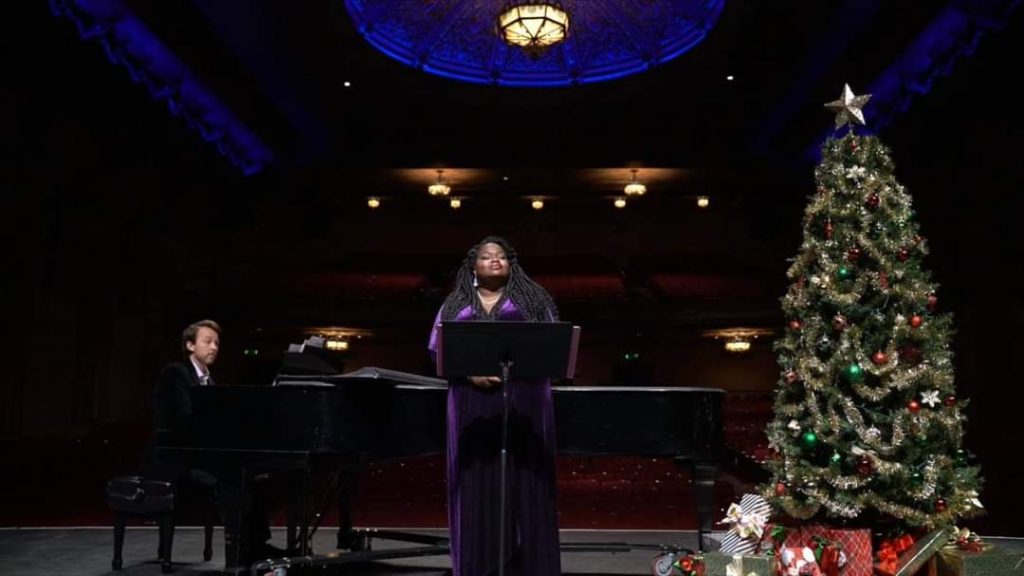 Me performing now.
Me performing now.
It takes a lot to keep going sometimes. And I greatly credit Black and brown role models of mine in performing arts. People like Debbie Allen.
Before I discovered Whitney Houston or Leontyne Price, I discovered Debbie Allen. I watched Fame with my big sister over and over as a kid, and I was absolutely fascinated by this beautiful, brown-skinned woman who was so confident and strong and could dance.
So this year, I was thrilled to learn that not only does Debbie Allen put on her own inclusive, modern Nutcracker production every Christmas for the past ten years, but there was a documentary about it on Netflix — basically all of my favorite things rolled in one happy, glorious Thing.
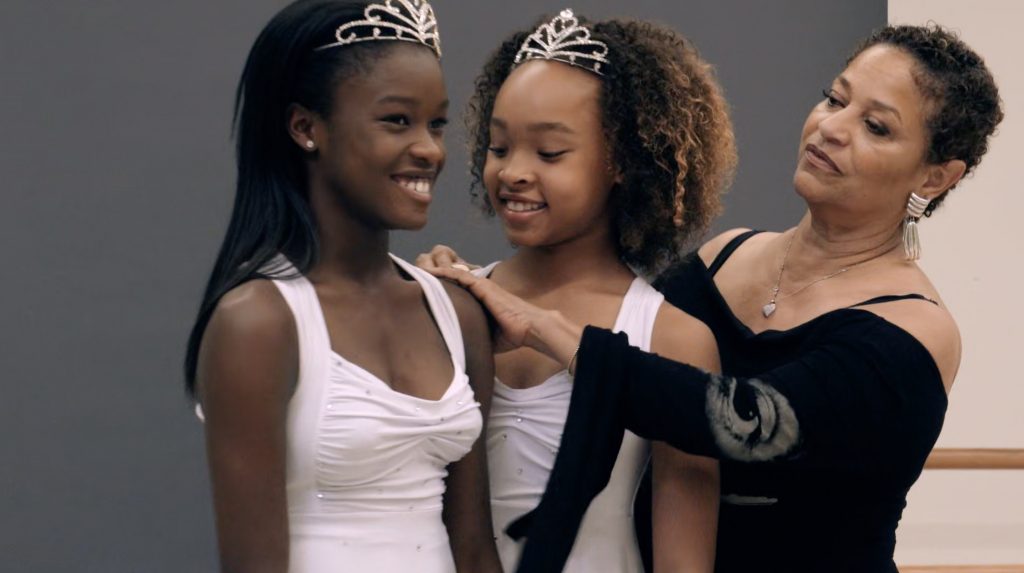
It is just so cathartic now as an adult, to see Debbie Allen being Debbie Allen, guiding young Black children through all of the steps you need to know to be in a professional production, But I think any aspiring dancer — or just fans of The Nutcracker — will be fascinated and inspired by Dance Dreams: Hot Chocolate Nutcracker. Because the lessons she teaches aren’t just about performing. They’re about life.
The documentary, directed by Oliver Bokelberg (himself a DADA company parent) alternates between a compelling story about Ms. Allen’s life, and the process of creating her massive, nearly 200-person, inclusive production of the Nutcracker ballet, incorporating dance styles from hip-hop to Bollywood. It’s a celebration of how far women of color have come, and a reminder of how far we still have to go — and how important representation is. And it does all of this with joy.
Right from their first auditions for The Hot Chocolate Nutcracker, we get to know some amazing young girls, and experience their own struggles, which so much mimicked mine.
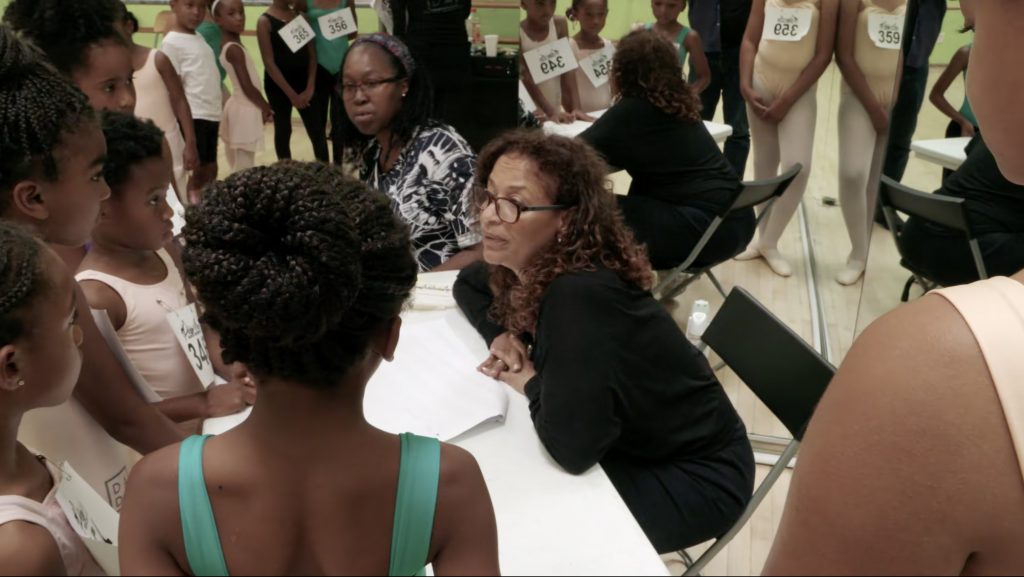
I was particularly struck by April, a quiet, beautiful, dark-skinned principal dancer in the company. While everyone who knows her describes her remarkable talent — she was made to dance — she herself acknowledges she doesn’t have the “perfect” dancer’s body. She thinks she’s not thin enough. She thinks her legs are over-developed. And through her, we’re reminded that a dancer’s body comes with a ton of work, to help it do all the things it needs to do. No one is born with it.
It’s a message that just may remind kids — particularly kids like me — that you should always pursue your passions.
To me, the most beautiful moment in the film takes place after Ms. Allen finishes watching a rehearsal with some older, more advanced dancers. They stream out of the studio, thanking her individually for the rehearsal, when she stops one tall, dark-skinned dancer and says, “More joy! You’re beautiful! Do you know how beautiful you are? I don’t think you do! You’re SO BEAUTIFUL! Embody that, EMBRACE that when you dance!”
Don’t so many children need to hear that message, whether they dance or not?
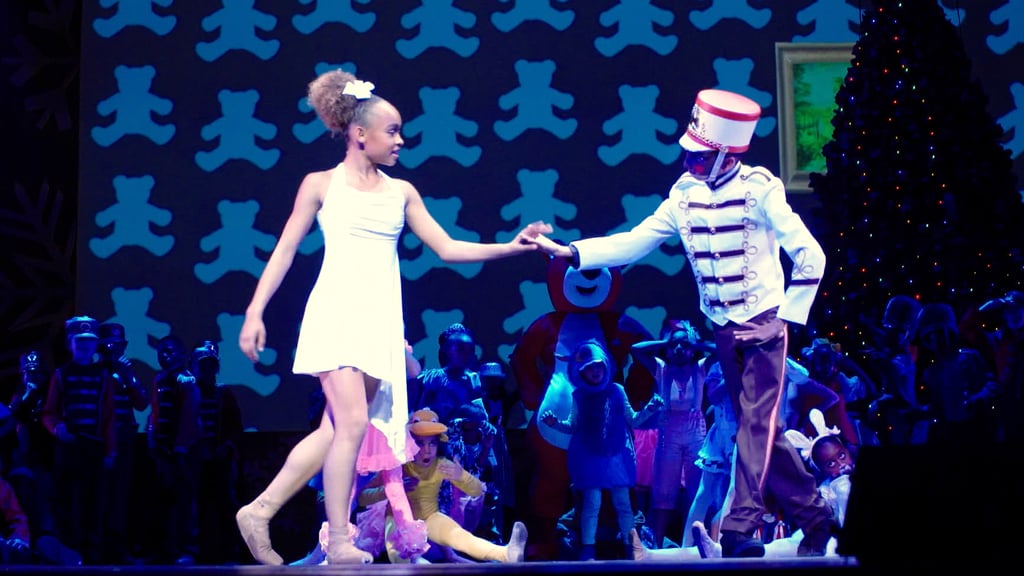
I remember a time I sent my own voice teacher a panicked text before an audition. “I’m worried,” I wrote. “I don’t sound like these people, I don’t have as much experience, and I don’t look like them.”
“You are there for a reason,” he said. “You sound like yourself. That is all that matters. Your job is to be yourself and use your voice, because your voice is important. What you have to say is important. What you have to show is important. Just do your best, it is enough.”
I needed that. I needed to hear it. And it’s become the message I now pass on when I work with younger people who are worried they’re not good enough either.
I wish I’d have heard that advice and learned that lesson sooner in my artistic journey. And maybe, through Debbie Allen and this wonderful documentary, other young performers will get that chance.
I hope lots of families sit down to watch Dance Dreams: Hot Chocolate Nutcracker together this holiday season. And not just Black and brown families, either. These are important messages for everyone.
Stream Dance Dreams: Hot Chocolate Nutcracker on Netflix this holiday, and learn more about Debbie Allen Dance Academy or DADA, on their website, should you want to support this wonderful non-profit. These dancers are lucky to have Ms. Allen in their lives, and the more I think about it, I’m lucky to have her in mine.
Personal photos © Ibidunni Ojikutu, other photos © Netflix
